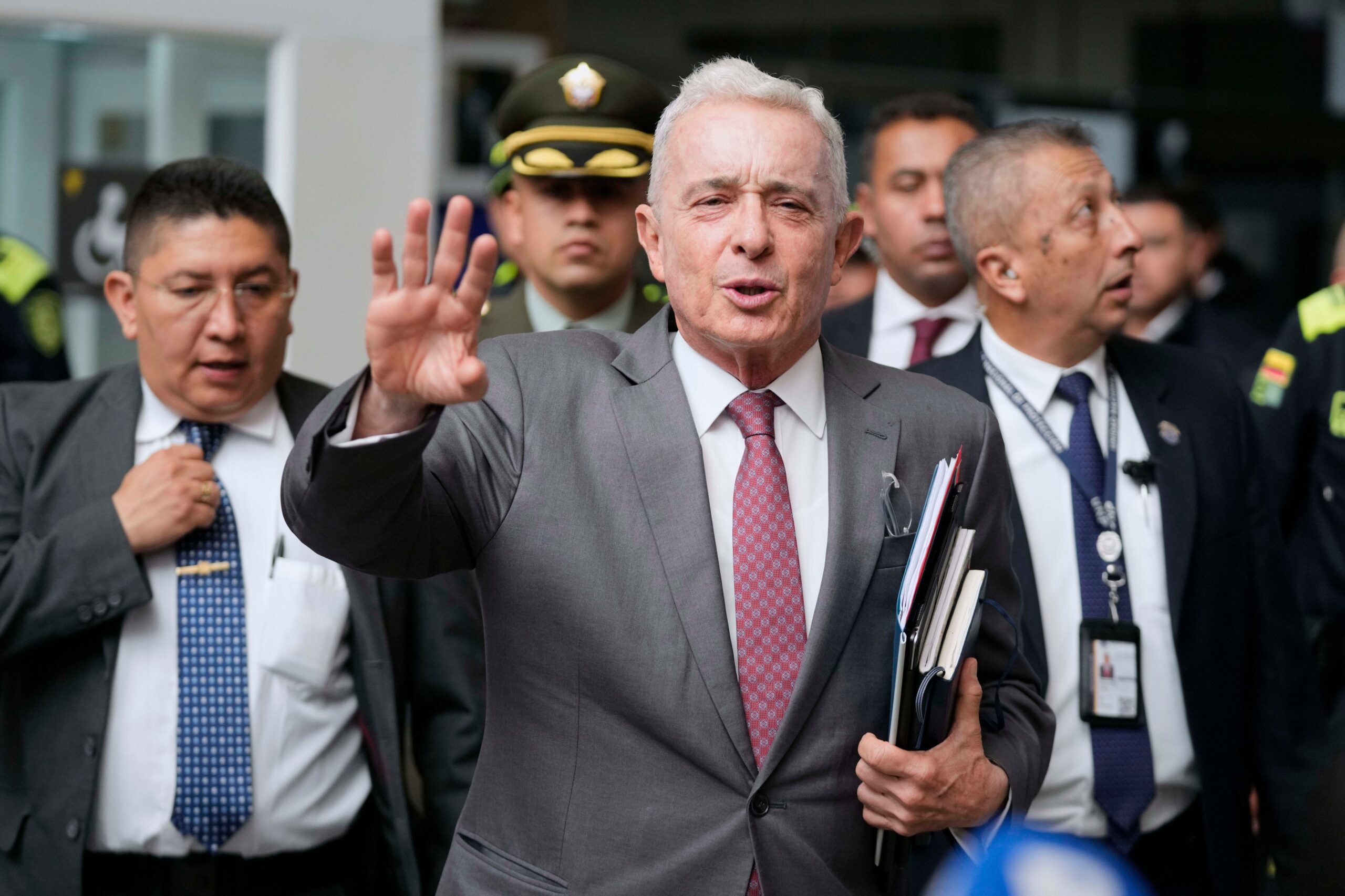BOGOTAIn a landmark case that engulfed the South American nation and damaged the conservative strongman’s legacy, former Colombian President Ivaro Uribe was convicted on Friday to 12 years of house imprisonment for witness tampering and bribery.
Following a nearly six-month trial during which prosecutors provided evidence that he tried to sway witnesses who accused the law-and-order leader of having ties to a paramilitary group in the 1990s, Uribe indicated the sentence will be appealed.
Suggested Videos
Following Friday’s hearing, Uribe declared that politics had won out over the law in the sentencing process.
The 73-year-old Uribe has denied any misconduct. On Monday, he was found guilty and sentenced to up to 12 years in prison.
Uribe’s lawyer had requested that the court grant him his freedom while he appealed the decision. Judge Sandra Heredia stated on Friday that she denied the defense’s appeal because the former president might easily flee the nation to avoid the sentence.
In addition, Heredia penalized Uribe around $776,000 and barred him from public office for eight years.
Uribe said on X that he was putting together reasons in favor of his appeal prior to Friday’s sentencing. He went on to say that during personal crises, one needs to focus far more on the solution than the issue.
Either party may then contest the decision before Colombia’s Supreme Court after the appeals court has until early October to render a decision.
With the backing of the United States, the former president presided over the country from 2002 to 2010. He is a divisive figure in Colombia; some believe he prevented the nation from collapsing, while others link him to abuses of human rights and the emergence of paramilitary organizations in the 1990s.
Heredia said on Monday that she had seen enough evidence to conclude that Uribe and a lawyer conspired to persuade three imprisoned former members of a paramilitary group to alter the testimony they had given to Ivan Cepeda, a left-leaning senator who had opened an investigation into Uribe’s alleged paramilitary affiliations.
In 2012, Uribe sued Cepeda in the Supreme Court for libel. In a surprising turn of events, however, the top court in 2018 dropped the charges against Cepeda and started looking into Uribe.
After learning of the punishment, Martha Pe uela Rosales, a supporter of Uribe’s party in the capital, Bogota, said she prayed and grieved. The sentencing is unfair. She asserted that he was entitled to freedom.
Sergio Andrs Parra, who demonstrated against Uribe outside the courthouse, said that the 12-year sentence was sufficient and that history had already convicted the former president, even if he appealed.
The Colombian military achieved some of its greatest battlefield triumphs against the oldest leftist insurgency in Latin America during Uribe’s presidency. This forced the Revolutionary Armed Forces of Colombia into isolated areas and forced the group’s leadership to engage in peace negotiations that resulted in the disarmament of over 13,000 fighters in 2016.








